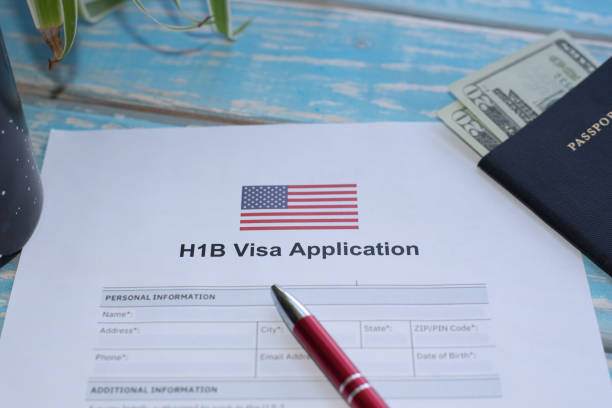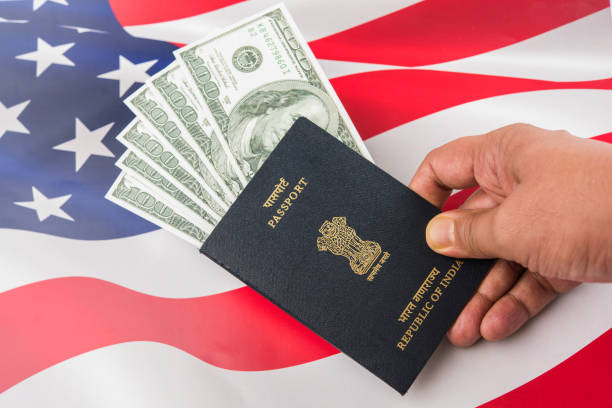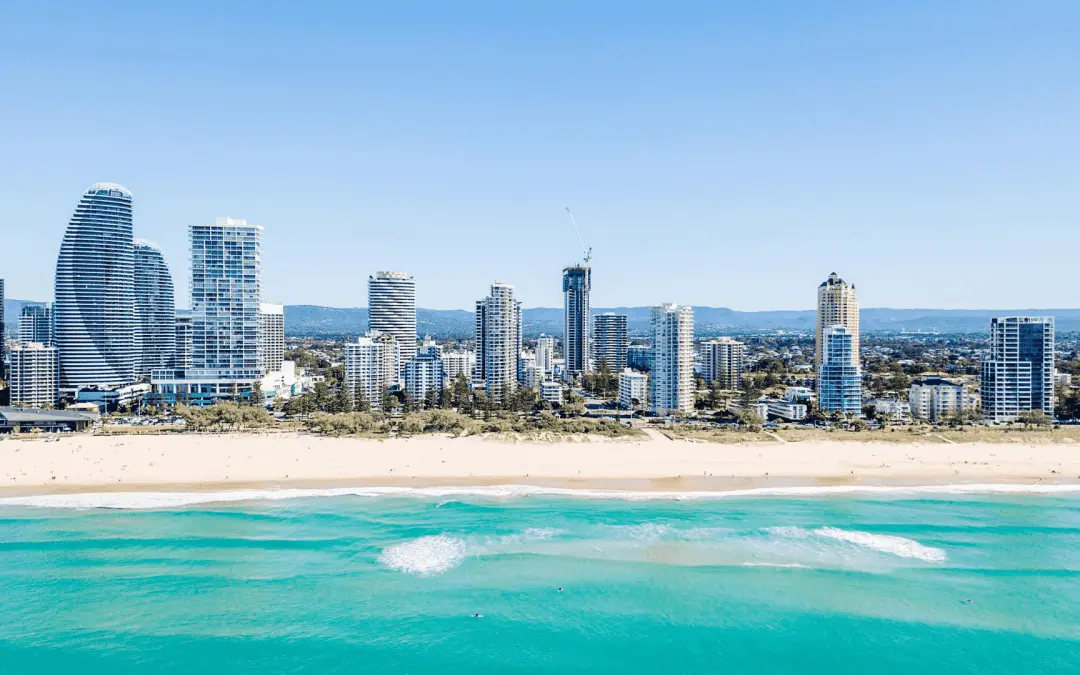Immigration
Is it Worth Immigrating to the U.S. on an H-1B Visa?
By
International graduates and students who want to stay in the United States, work, and support the growing economy will most likely choose the H-1B visa!
It’s worth immigrating to the U.S. on an H-1B visa due to its numerous benefits for the visa holder, their spouses, and employers.
However, applicants face intense competition because the number of H-1B visas granted is limited annually. Selected applicants can work in the country for a maximum of six years.
Under some circumstances, the visa can offer a road to permanent residency, making it worth immigrating to the U.S. on an H-1B visa.
If you are considering applying for an H-1B visa or are an employer sponsoring H-1B visa holders, keep reading to learn how to maximize the visa’s benefits.

What is an H-1B Visa?
The H-1B visa is a non-immigrant work visa that allows U.S. companies to employ foreign workers with specialized talents for a set amount of time.
A bachelor’s degree or its equivalent is usually required for the positions. Technology, finance, engineering, architecture, and medicine are among the professions eligible for the H-1B visa.
This U.S. visa is a dual-intent visa, meaning holders can apply for permanent residency while on the visa. This allows holders to bring their spouses and children to the United States on derivative visas.
Now, let’s check out why it is worth immigrating to the U.S. on an H-1B visa!
H-1B Visa Cap
The number of H-1B visas issued each fiscal year is capped at 65,000. However, the applicants free from this cap are the first 20,000 petitions filed for applicants with a master’s degree or higher.
The H-1B applicants exempted from this yearly cap include workers employed at a non-profit research organization connected to an institute of higher education.
Workers from institutes of higher education, non-profit research organizations, or government research organizations are also exempted.
The H-1B Visa Process
Before entering the United States under the H-1B classification and starting working, you may need to register with U.S. Citizenship and Immigration Services (U.S.C.I.S.) and be selected to apply.
Once you have chosen to apply for the H-1B visa, your employer can begin the process by filing a petition on your behalf.
Your employer must submit a Labor Condition Application (L.C.A.) to the Department of Labor (D.O.L.) for Certification.
The L.C.A. seeks to ensure that your working conditions won’t negatively impact other employees and that your company will pay you the same as other similarly qualified workers in the same area.
Your employer must also fill out Form I-129, Petition for a non-immigrant Worker, and submit the L.C.A. and the I-129 to U.S.C.I.S.
And add any necessary fees and supporting documentation when the L.C.A. has been certified by the D.O.L. These other documents may include evidence of your education, training certificates, or professional membership documents if relevant.
It may also include your resume, a confirmation letter of employment, a letter of support, and any necessary fees. If your Form I-129 is approved, there are two options for you, depending on whether you are already in the United States.
If you are within the United States on a different visa category, you must wait until your H-1B visa status becomes active before you can start working. However, outside the United States, you must apply for consular processing.
This will be done by completing Form DS-160, which will take around 90 minutes. You must also pay the application cost and schedule an interview at a nearby U.S. embassy or consulate.
After scheduling an interview, you will need to bring the following documents:
- Your valid passport is valid for at least six months after the day you plan to enter the country.
- A copy of your Form DS-160’s confirmation page is printed out.
- A copy of your I-797 approval and your approved I-129 petition.
- Documents attesting to your payment of the application fees.
- A passport-sized photo that complies with U.S. State Department guidelines is also necessary.
During the interview, you might be questioned about yourself, the position, your experience, the business, and your past travels.

Benefits of the H-1B Visa for Employers
- Increases the talent pool: Some U.S. industries, such as health services and hospitality, face significant labor shortages. The H-1B visa program allows companies to hire the best, no matter where they are from and helps alleviate labor shortages by focusing on specialized skilled workers.
- Diversify the workforce: Studies indicate that a more diverse workforce can boost innovation and global competitiveness, leading to greater corporate success. Employing bilingual employees enables businesses to tap into non-English-speaking markets.
Benefits for H-1B Visa Holders
- Six years of work authorization: The company and the employee will decide precisely how long the work authorization will remain, but an H-1B can be issued for up to six years. The initial visa is typically issued for three years, after which it can be renewed for three years.
- Guaranteed prevailing wages: H-1B visa holders are guaranteed a specific salary based on their experience level, education, job, and area in the U.S. It is better than the average salary for domestic workers in similar roles.
- Flexibility to change jobs: H-1B holders can easily switch sponsoring employers by asking the new employer to file an H-1B Change of Employer petition on their behalf. After filing the petition, the worker can start their new job without waiting for approval.
- Dual intent status: The H-1B is a dual intent visa, meaning visa holders can apply for a green card while on a temporary visa. If that is the long-term goal, this provides a clear pathway to permanent residence.
- Potential to extend visa beyond six years: H-1B holders who have their form I-140 approved may request an extension of H-1B status while they wait to submit their green card application. This is quite helpful if you want to keep working and living in the United States and are from a country like China or India, with a lengthy waiting period for a green card.
Benefits of H-1B Visa for Holder’s Spouse and Dependents
An additional advantage for holders of H-1B visas is the ability to lawfully bring their immediate family members into the country. They are given H-4 visas, which have the advantages listed below:
- Obtaining authorization for spouses to attend college or university is unnecessary.
- Unmarried children under 21 do not require a student visa to attend school.
- Using Form I-765, spouses can request work authorization.
The application for employment authorization is restricted to specific spouses of H-1B visa holders. Qualified individuals can work for any U.S. corporation after obtaining their Employment Authorization Document (E.A.D.).
This is a fantastic chance for spouses to support their families financially and build a fulfilling life in the United States.
Conclusion
If you are still contemplating whether it is worth immigrating to the U.S. on an H-1B visa, reflect on the above benefits and how they align with your professional goals.
The H-1B visa benefits employers, employees, and even their families. However, securing the visa through the H-1B cap lottery can take time due to high demand.
Frequently Asked Questions
1. Can I travel outside the U.S. on an H-1B visa?
A valid visa allows you to go to a U.S. port of entry and request entry to the U.S. If you travel out of the U.S. and return, as long as your H-1B visa is still valid, you may be able to be admitted on H-1B status.
You may present evidence of your employment or visa validity at the border.
2. When can I start filing my H-1B visa application?
If your H-1B visa is subject to the cap, you must register online first. Remember that being selected in the lottery allows you to apply for a visa for the following financial year.
If you are selected, you and your employer can petition for a H-1B visa on your behalf. Applying for your visa can take around 90 days, but the filing period and location will be on your H-1B Registration Selection Notice from U.S.C.I.S.
You can apply for your passport up to six months before your visa start date.
3. Can I extend my H-1B visa?
Your H-1B visa is generally valid for three years, with extensions available for up to three (3) years after that.
To do this, your employer must complete and file Form I-129 again on your behalf, along with any supporting documents, and pay the filing fee.
4. Can I transition from an H-1B visa to a green card?
The H-1B visa is a dual-intent visa, meaning you can apply for a green card.
5. Who can sponsor the H-1B visa?
Any U.S.-based employer can sponsor the H-1B visa. If the employer has an I.R.S. Tax ID Number, they can register to file a petition on your behalf.
6. Can I apply for an H-1B visa if I don’t have a job first?
Because the H-1B visa is employment-based and requires your employer to file certain forms, you will need a job offer before applying.






